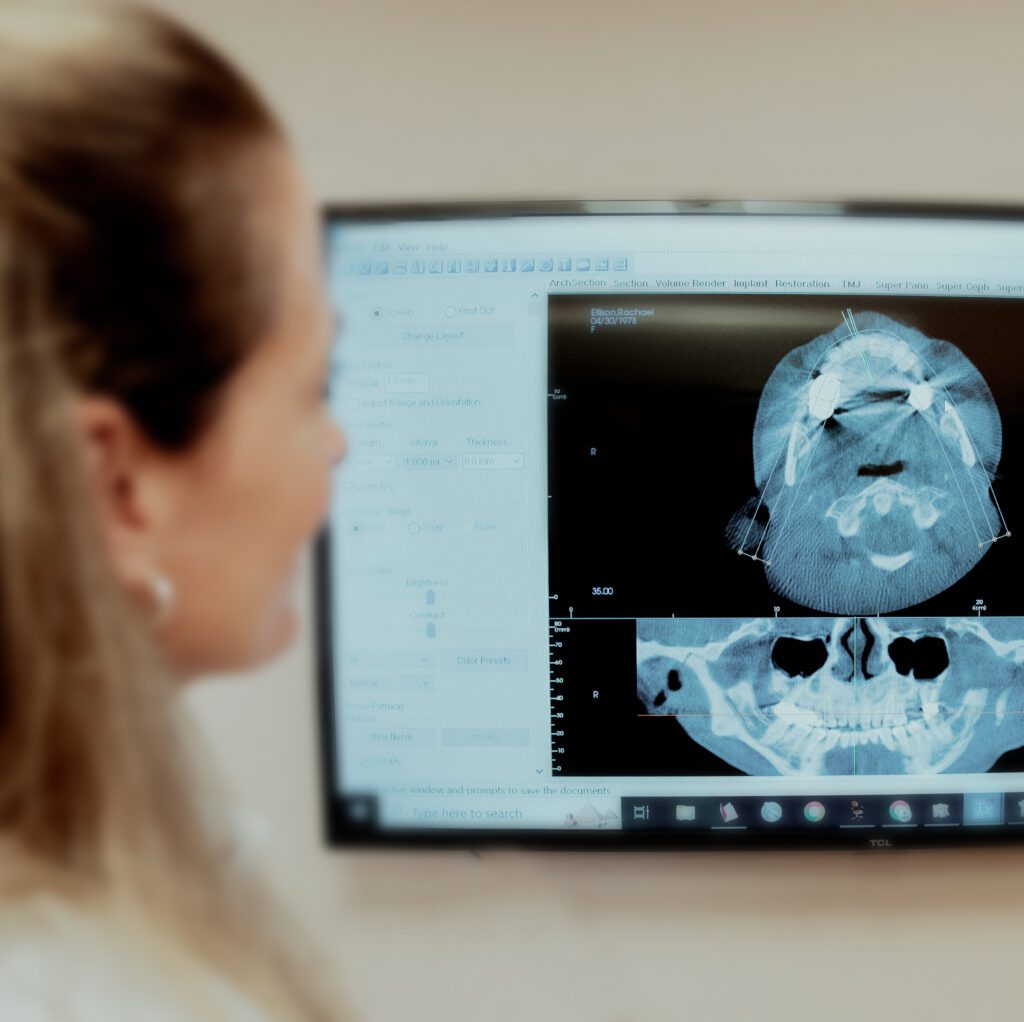Gum recession is one of the most noticeable results of periodontal disease (gum disease) and is the movement of the gum line down the root of a tooth.
Recession can be limited to one tooth or many, and symptoms vary from none to root sensitivity, inflammation of the tissues, root exposure, cavities, or esthetic concerns. Repairing gum recession is important because gum tissue is the primary barrier to bacteria.
Without adequate gum tissue around the teeth, bacteria can cause gum disease, bone and gum deterioration, and even tooth loss. Receiving a soft tissue graft in our Concord or Lexington, MA office can restore your gum health and appearance. In addition to providing soft tissue grafts, we offer dental surgical procedures to new and existing patients.


Benefits of a Soft Tissue Graft in Concord & Lexington, MA
Those who feel their teeth are too large or embarrassed by the amount of tooth showing can also benefit from gum grafting procedures. Gum grafting can also lower the gum line to a more attractive level. Doing so will reduce the amount of visible tooth structure and increase the overall health of the teeth and gums.
There are three types of gum grafting surgery. Which type your dentist uses will depend on each person’s unique situation and specific needs.
Connective-Tissue Grafts
Connective-tissue grafts are the most common form of gum grafts. They are used to treat root exposure around one or more teeth. During the procedure, the dentist will cut a flap of skin from the roof of your mouth and remove tissue from under the flap.
The flap is then stitched back down. The removed tissue will then be stitched to the gum tissue surrounding the exposed root. Over time, the attached tissue will grow with the gum tissue already there, forming a higher gumline around the tooth.
Free Gingival Grafts
Free gingival grafts are similar to connective tissue grafts except that instead of cutting a flap to remove tissue underneath, a small amount of tissue is taken directly from the roof of the mouth. This tissue is then placed and attached directly to the treated gum area. Dentists prefer this method for those who have naturally thin gums.
Pedicle Grafts
The pedicle graft method does not take graft tissue from the roof of the mouth. Instead, the gum tissue is grafted from gum tissue around the tooth needing repair. In this method, the flap (called a pedicle) is partially cut away so that one edge remains attached.
The flap is pulled up (lower jaw) or down (upper jaw) to cover the exposed root and sewn in place. This method is preferred for patients with plenty of gum tissue near the tooth needing repair.
In addition to natural grafts from the patient, some dentists prefer to use graft material from a tissue bank.
After the procedure, you will be able to go home. However, if you were given a sedative to relax, you would need a friend or family member to drive you. Be sure to follow all instructions your doctor gives you for post-operative care. Do not floss or brush the treated gum line until the area has healed. A special mouthwash will be given to you that will help control plaque during this time.
For about a week after the gum grafting procedure, your diet will be limited to soft foods such as eggs, pasta, Jell-O, and yogurt. Pain varies from patient to patient and depends on many variables, including pain tolerance and the type of gum graft performed.
Your doctor will likely recommend an over-the-counter anti-inflammatory medication or, in rare cases, a prescription pain medication. Many patients can return to work within a day or two.
Restore Your Gums
Renew your gum health with a soft tissue graft. At Concord Lexington Periodontics, we ensure that patients feel comfortable throughout treatment, no matter their needs. Call our Concord office at 978.391.6081 or our Lexington office at 781.384.5892.
